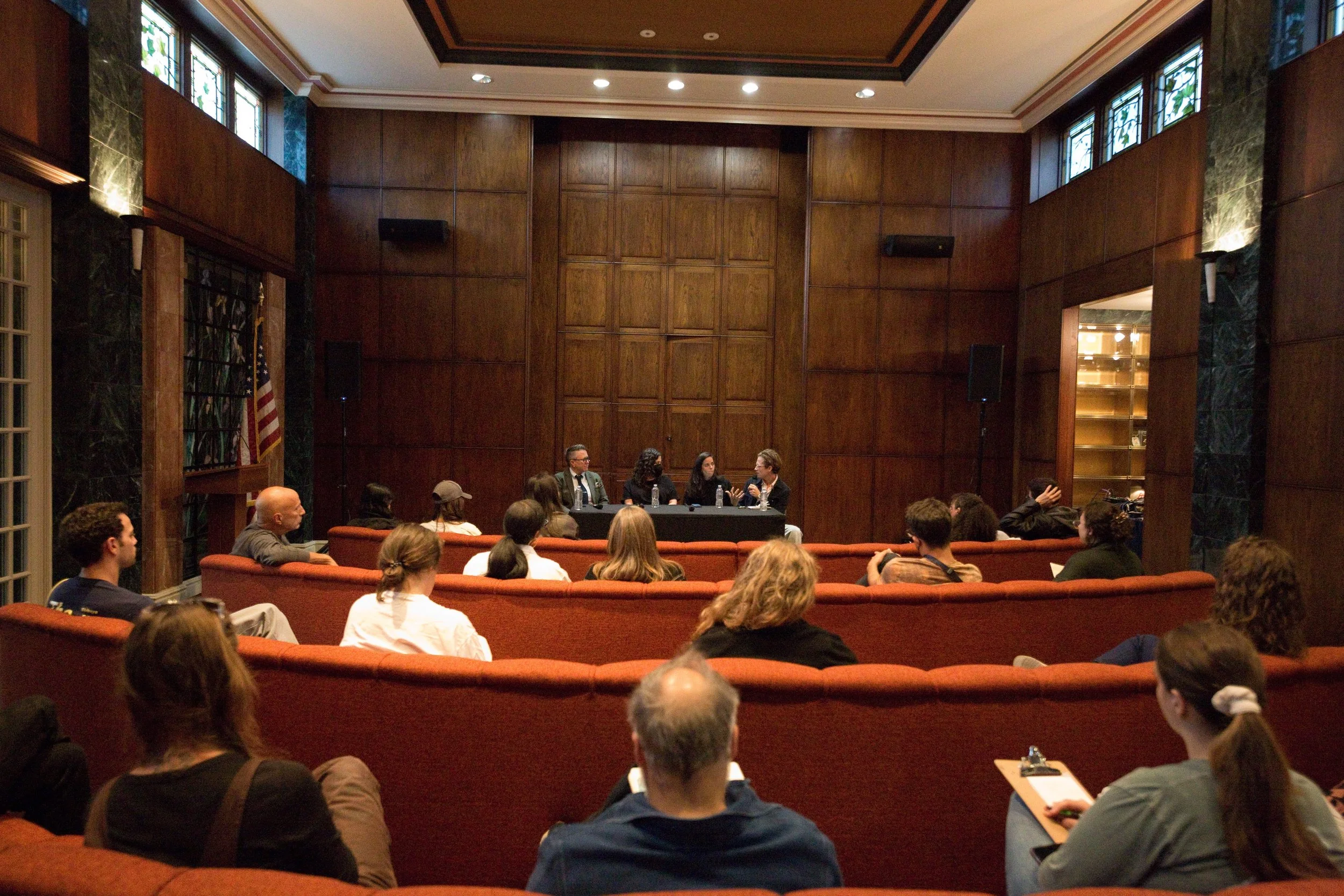Lost in the storm
Photo by George del Barrio, Vanderbilt Republic. Memorializing Ecological Loss at Green-wood Cemetery
Two weeks ago, I gathered people at a cemetery in New York to reflect on how we might memorialize ecological loss. With climate change reshaping places we know and love into unrecognizable landscapes and uninhabitable terrains, how do we mourn that? What would a “planetary” cemetery look like? How will we ritualize and share memories of these habitats with ourselves and future generations? Between our panel discussion and interactive session, it felt like we were beginning to get some answers.
And then, two days later, Hurricane Helene made landfall in the Southeastern US, making our exploration all the more real, yet sending my thoughts adrift.
I’m often struck by the language we used to describe climate disasters. Headlines often personify storms as if they’re conscious perpetrators: the hurricane “struck”, “ravaged”, “decimated”; the wildfire “threatens”, “rages”, “destroys”. Blaming the weather as if it’s a force of evil is like blaming a malnourished baby for incessantly crying. We are not separate from the way weather plays out.
Because in one sense, we did this.
When I say “we,” I mostly mean executives and shareholders of fossil fuel companies, leaders who prioritize investing in wealthy areas over rural lower-income regions, and elected officials who fund weapons and genocidal wars instead of resilient infrastructure. I also mean “we” as in me. The me who flew to New York for Climate Week, and flies often, and chases airline status. The me who hasn’t made the kind of personal sacrifices people on the front lines of climate justice have. The me that sees the problems and names some of them here and yet feels powerless as an individual to do anything about it.
And still, there is randomness to loss. A loved one unexpectedly dies. A hurricane happens to move along a path where there’d already been days of heavy rain. This randomness is so uncomfortable because we want to be able to stop terrible things from happening and we all deserve to be safe. And because loss is perpetuated so unequally, and because chalking up climate crises to mere randomness is exactly what those in power preferred we did, it feels almost unethical to acknowledge randomness as a factor. And yet, randomness is real.
To put it more simply: Disasters like Helene are preventable and not preventable. Terrible storms have occurred since long before the Industrial Era and modern-day actions of us humans are absolutely to blame for the intensity of storms. We can do more to stay safe and life is utterly unknowable. I can act differently and I can’t fix this.
Throw this very paradox into the all-flattening algorithm whereby I encounter most information about terrible things in the world through my phone, and we’ve got a perfect recipe for me feeling really lost. Can you relate?
Thankfully, through the grief work I’ve learned so much from and now embed into my offerings, it’s become easier for me to notice when feeling lost leads me towards dissociation. When this arises, I embrace things we need in order to grieve. Whether I’m acutely grieving or not, embracing grief-honoring tools helps me practice “(the) art of being at home in the unknown,” as Rebecca Solnit discusses in her book A Field Guide to Getting Lost.
“To be lost is to be fully present, and to be fully present is to be capable of being in uncertainty and mystery,” Solnit writes.
So here I am, lost – or rather, fully present – in the paradox of the latest climate crisis. Fully present with how much the injustice hurts, fully present with wonderful times I’ve spent in the Blue Ridge Mountains, and fully present with my heart aching for loved ones and total strangers in the region. Fully at home in having no idea exactly what the hell comes next for rural infrastructure resilience, for the election, for the Middle East, for any of us.
What I do know is that being at home in it together is the most comforting and supportive way forward. And that while communities across Appalachia rebuilt, may the rest of us reflect and reconsider. That, perhaps, is the best clue towards what a “planetary” cemetery aught to look like — a means for gathering, sharing, changing, and loving, amidst it all.
Thanks to everyone I got to convene with for NYC Climate Week. Much more to come of our fruitful conversations and connections :)

